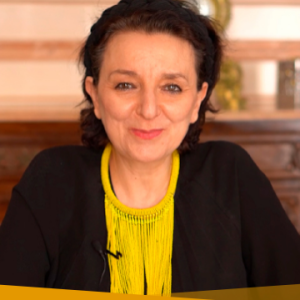
6 days ago
Eva Illouz - Democracy in danger: how emotions affect grievances and politics
One of the chief assumptions of liberalism, at least a certain strand of liberalism and democratic theory, is the hope that the public sphere would be governed by reason: specifically, deliberative reason.
About Eva Illouz
"I’m a sociologist and I teach in Paris at the School for Advanced Studies in the Social Sciences.
My work is about the sociology of emotions, the sociology of capitalism, the sociology of consumer culture and the interface between all of these. I’m the author of 13 books, and perhaps most recently The End of Love."
Do emotions belong in politics?
One of the chief assumptions of liberalism, at least a certain strand of liberalism and democratic theory, is the hope that the public sphere would be governed by reason: specifically, deliberative reason. The fact that citizens can each express what they think would generate the process in which, through argument and disagreement, they would discover the truth together.
This assumption is very old in our philosophy. Plato did not have much respect for the leader or the educator who used emotions to reason. The use of emotions in the political sphere and the public sphere has always been deemed counter-democratic. Machiavelli, when advising the prince on how to control his subjects, put fear at the centre of his mode of governance. He suggested that the best way would be to invoke fear and love in his subjects.
But if you had to choose, you should choose fear over love because through fear, you can at least have social order. We have come to view this kind of advice as being antithetical with a democratic way of conducting our political affairs. That is a mistake. Emotions are never far from politics; in fact, they are always built within politics.
Key Points
• The use of emotions in politics is considered counter-democratic, but emotions are built into politics.
• Minorities are increasingly giving voice to long-held grievances.
• A rhetoric has emerged in which the majority feels oppressed by the minority.
• Mutual grievances have led to the extreme polarisation of politics.
No comments yet. Be the first to say something!